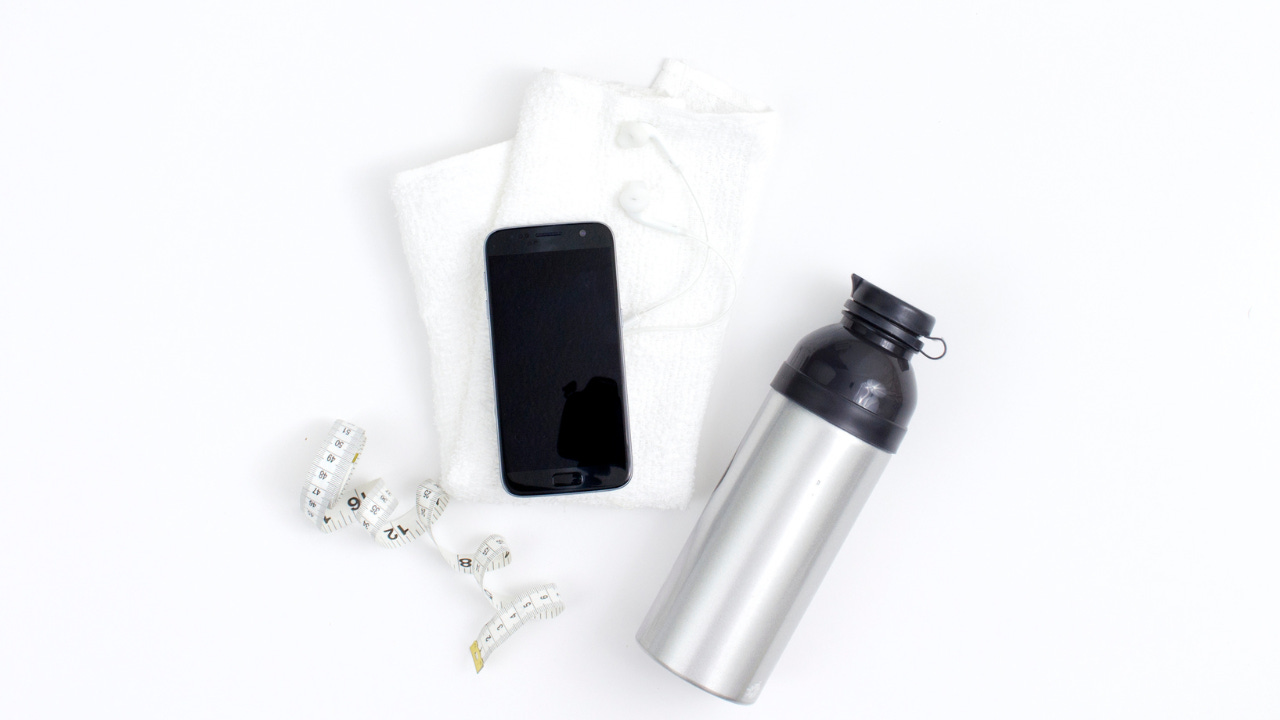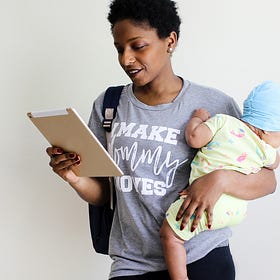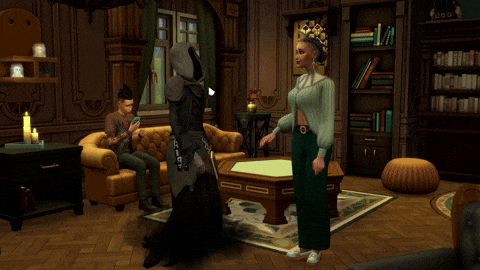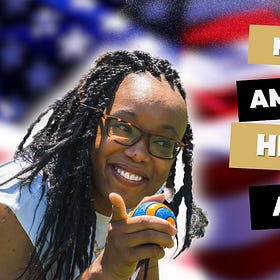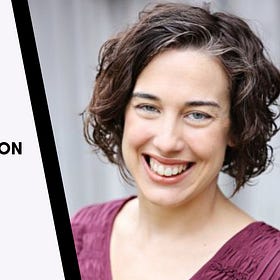Rethinking Health in America Beyond GLP-1s
What “Make America Healthy Again” gets wrong about food, poverty, and the SNAP program.
Like many people in the health and wellness space, I’ve been following the back-and-forth regarding SNAP program cuts. As I shared last week, my mother and other seniors in her community are SNAP recipients, so this is an issue that is quite personal to me. Having grown up in a low-income household, I understand how much programs like SNAP can be for families in need. While it’s aimed at being a “supplement,” we all know that this program is essential for many families who are food-insecure.
When SNAP Disappears, So Does Health
“I have access to the food pantry, but I’m not sure what others in the building will do.”
Unsurprisingly, on the “my side” of Substack, I’ve seen many other writers discussing this issue extensively. As I scrolled through the posts, I came to realize how politicized health has become (and many will argue that it has always been). Kate Manne, author of “More to Hate,” shed light on the politics of health in a recent post about the White House press conference, which put the popular internet meme of a man passing out in the Oval Office into context for me.
What this post also did was bring awareness to the recent announcement that the administration is making weight-loss drugs cheaper to address obesity, which DHS Secretary Kennedy claims is a disease of poverty. If you had to reread that sentence, know that you’re not alone. As I went further down the rabbit hole, I began to wonder if we’re actually living in a simulation, because this can’t be reality. If it is, can the Grim Reaper just take me already?!
In all seriousness, because this situation is in fact serious, why isn’t anyone explaining to our fearless leaders that providing cheaper GLPs won’t make our nation healthier without addressing food apartheid and the lack of nutritional support?
What is Food Apartheid?
We often hear the term “food desert”, but the problem with that term is that it treats food insecurity as a naturally occurring thing when it’s usually very intentional. Food apartheid is a term coined by Karen Washington, who is a food justice advocate and urban farmer, that recognizes that racist policies have contributed to limited access to food in Black and Brown communities. For that reason, I take a serious issue with Secretary Kennedy and Centers for Medicare & Medicaid Service Administrator Dr. Oz, complete focus on obesity while being disinterested in addressing the discriminatory policies that contribute to low food access areas.
According to Feeding America, in 2023, 1 in 4 Black people in the U.S. experienced food insecurity, with over 9 million not being able to access enough food to lead a healthy life. I don’t expect those numbers to improve by cutting the SNAP program, which has allowed people to access the nutrients they need just to survive, let alone thrive. Couple that with the poverty rate in Black communites being 17.9% compared to 11.1% among the entire U.S. population, you can see why I’m side-eyeing Secretary Kennedy and Dr. Oz. As I shared months ago regarding my thoughts on the “Make America Healthy Again (MAHA)” campaign, we won’t make this nation healthier by continuing to ignore the systemic barriers that stand in the way of ensuring that every person has access to nutritious foods.
Make America Healthy Again? Start With Health Equity
Since Trump popularized “Make America Great Again,” there’s been a new rallying cry: “Make America Healthy Again.” It sounds good, right? But without a focus on health equity, it’s just another empty slogan—more lip service in a system that already fails millions of Americans every day.
Why Do We Need Nutritional Support?
As a Precision Nutrition (PN) Level 2 Master Coach, I’ll be the first to say that nutrition isn’t as simplistic as health and wellness influencers try to make it. One of the things I’m truly grateful for during my PN Level 2 Master Coach studies was being part of a cohort of coaches who were actively working with GLP-1 clients. One of the common challenges that arose for most coaches was that their clients simply were not eating because they rarely felt hungry. For coaches, like myself, who haven’t worked with GLP-1 clients, that was an ah-ha moment that served us far beyond the classroom.
What I learned from speaking with other coaches was that we don’t discuss enough that GLP-1s can significantly suppress a person’s appetite. The normal hunger and fullness cues that many of us have become accustomed to depend on to eat when we’re hungry and stop when we’re full can be impacted by GLP-1s. So, when you hear that some GLP-1 clients are “wasting away,” that might not be as dramatic a statement as you would think. Although this isn’t the case for everyone, as I know people taking GLP-1s who eat regularly, the point is that everyone’s bodies are different. If your body isn’t receiving the same hunger and fullness cues as it did before, you may need additional nutritional support.
Whether that’s Registered Dietitians, Nutritionists, or Health Coaches, having someone who can support you in eating without the presence of hunger cues is critical. I don’t mean providing meal plans if that’s outside their scope of practice, but it might mean creating reminders to eat and drink water regularly. It might seem simple, but having that support can ensure you’re not unintentionally skipping meals. If you’re intentionally skipping meals, I want you to know that there is no judgment here. As a coach as well as a recovering disordered eater, I can tell you firsthand that unlearning the harmful narratives about food and our bodies is critical and a topic we covered earlier this year when I interviewed Julie Duffy Dillon of PCOS Health with Intuitive Eating.
Your Body Is Not the Problem: Reclaiming Health Beyond Diet Culture
If you’ve ever felt like you were the problem because the diet that supposedly works for everyone didn’t work for you, know that you’re not alone. This week’s Substack is extra special because I have the opportunity to interview Julie Duffy Dillon, a registered dietitian and author of Find Your Food Voice. In this interview, Julie talks transparently about the shame so many of us carry around food, the deep roots of diet culture, and how we can begin to unlearn harmful health narratives.
What We Can Do
Despite the challenges many face with food security in our nation, there is hope that has come in the form of the American people. I don’t say this lightly, but I’ve been impressed by the collective action of individuals, communities, and organizations. It has shown me that there is nothing too small that we can do to have a massive impact:
Donate to or volunteer at your local food bank: With the government shutdown, food banks have become an even more present lifeline for families in need. Whether you’re in a position to donate financially or you have a group that can donate your time, your support can make a massive difference.
Contact your local government or member of Congress: Whether it’s an email, phone call, or in-person meeting, letting your local government and congressional leaders know this is an issue that matters to you makes a difference. You can visit your local government’s website for their contact information, as well as the congressional website to contact your representative or senator.
What action can you take today to support food security?
It doesn’t have to be mentioned above. Whatever feels genuine to you! If this resonates with you, please share your thoughts.



